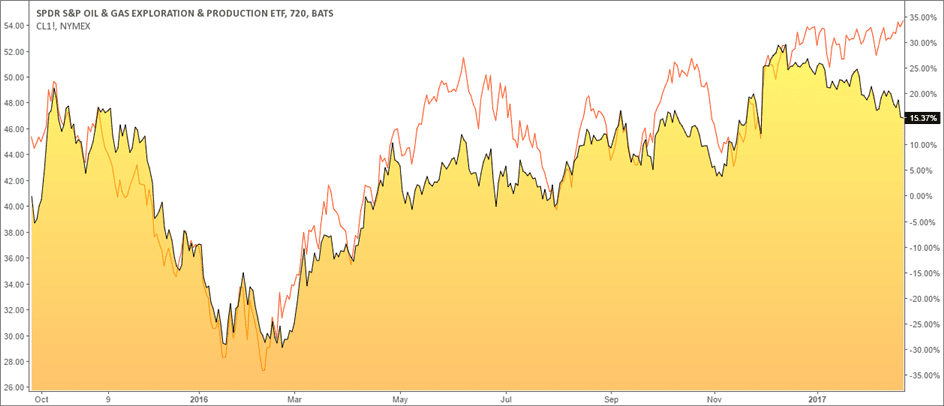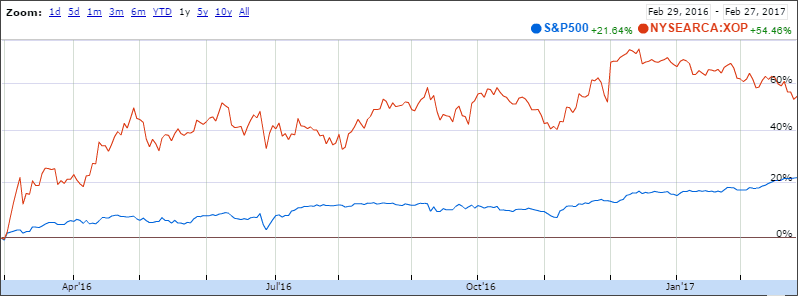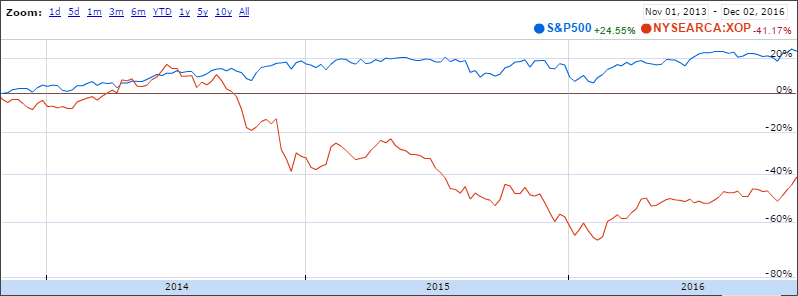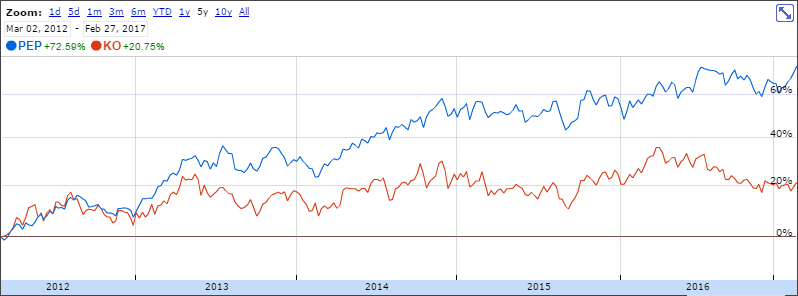Pure play is a term that one might have come across as part of their active investing strategies. Pure play stocks, as the name suggests are a specific set of companies which are focused on just one industry or product. Such type of companies are typically market leaders in the sector but at the same time, quite volatile as they do not have other products or services to fall back upon in case of a down turn in the economy or in the industry.
Think of pure play stocks as the exact opposite to a diversified stock. As one can imagine, there are both advantages and risks when dealing with pure play stocks. But despite the risks, pure play stocks are still a favorite among a certain class of traders or investors who prefer to focus on making specific bets on a company that is dealing with a particular product or a very niche industry segment.
Pure play day trades are by extension a trading approach which involves focusing on picking pure play stocks. There are many examples that can offer insights into the pure play day trades. Take the example of Oil. The crude oil markets were in a multi-year downtrend since OPEC decided to open the floodgates and (over) supply the markets with Oil.
Needless to say, oil stocks took a hit as falling crude oil prices started to eat into the profit margins. As the supply glut worsened, some oil companies even had to downsize to weather the downturn in the industry. However, since early 2016, the oil markets started to turn for the better, on increasing chatter about OPEC leaders planning to cut production, which was later ratified at the November OPEC meeting.
This scenario would have offered up oil stocks as a pure play trade. The chart below shows the SPDR S&P Oil and Gas exploration & production ETF (XOP) along with the price chart for Crude oil futures (red line).
The rising oil prices can be seen moving in tandem with the XOP ETF, thus making this ETF a pure play trade. This pure play here would be to focus on the XOP ETF or pick the stocks that have focus on the crude oil market, such as Oil exploration companies, drilling companies and so on.

XOP ETF tracking Oil futures prices
Thus, a pure play stock is one that is considered to be focused on just one particular product or an industry.
When it comes to research in investing, the pure play method is also used in estimating a project’s beta or the risk and the sensitivity of the project for a company. Companies make use of the pure play method to estimate whether there are any other publicly traded firms that are engaged in similar business projects or activities. Using the pure play method, businesses make use of the limited set of competencies that support the product or the service they are investing in.
Advantages and disadvantages of a pure play stock
It should be obvious about the risks and the benefits from trading pure play stocks. For starters, analyzing a pure play stock is a lot simpler and easier than trying to analyze the fundamentals for a diversified company or a business. The revenue and growth projections for a pure play stock are also easier to interpret and validate. Because of the stock or the company’s focus on just one product or industry, analysts are able to better judge and evaluate the company and trade accordingly.
Even for short term technical day traders, pure play stocks can help especially when one is picking the stocks as the tide rises. For example, a new regulation allowing easier distribution of vacuum cleaners could no doubt rise the stocks of all the companies that are dealing with vacuum cleaners, thus the day trader could potentially have a few stocks on their watch list and pick out the most promising ones to make a quick buck.
Trading pure play stocks offers the potential for high growth, especially when things are going well for the industry. The chart below shows the 1-year returns from the XOP ETF and the S&P500. You can see how strongly the XOP ETF which is a pure play for oil and exploration strongly outperformed the S&P500 index. But this was during the upturn, with the gains led by bullish fundamentals.

XOP ETF vs. S&P500 1 year returns
XOP ETF vs. S&P500 1 year returns
While pure play stocks come with some clear benefits, they are risky at the same time. Again, the answer is quite obvious, because they come with the risk of not being diversified. This makes pure play stocks susceptible quite easily to downturns in the industry or even the economy at times.
While a diversified business can easily manage to weather the downturn in one industry by banking on or increasing the products in a booming sector, pure play stocks do not have such luxury. And when sentiment worsens in an industry or a sector, you can expect pure play stocks to bear the brunt of it all.
The chart below shows the same XOP ETF compared to the S&P500 during the year 2015 – 2016, where the declining oil prices plunged prices of the pure play oil exploration companies lower, losing over 40% at one point in time.

XOP ETF vs. S&P500 returns
A good example of this can be the 2001 dot-com bubble which quickly put under a lot of pure play internet or dot-com companies. The dot-com crash revealed that companies that didn’t diversify and instead focused on just one sector were at higher risk of shutting business compared to other stocks within the same sector that were a bit more diversified.
Companies such as Yahoo Inc. were able to buy out other dot-com busts during the time. However it raises an important point. Companies such as Pets.com, synonymous to the dot-com crash became case studies which interestingly showed that the business model of building a product and then going after market share was to be blamed, just as the lack of diversification.
Examples of pure play and diversified stocks
While the above points might make one into being more aware about pure play stocks, there are some big names that have been giving investors some good returns. Some of the pure play stocks include Starbucks (SBUX) which is focused on selling coffee.
Another great example is Coca-Cola (KO) and Pepsico (PEP). Coca-cola is a considered a pure play stock in the beverage industry, but Pepsico isn’t a pure play because besides beverages, the company also owns Frito-Lays, which deals with snacks. Pure play stocks can also mean not just on the type of product the company offers but also the medium. For example, Facebook, Netflix are considered pure plays when you look at just the Internet as the medium of delivery. There are no physical goods or products in these companies or many other Internet companies. Interestingly though, although all these stocks might fall into the pure-play, once you look closer you can see that each of the businesses are in fact varied. So, in a way, an investor can be invested in stocks of Facebook and Netflix and the investment style might be pure play, but the business models of both these stocks are completely different.
Picking a pure play stock is mostly a matter of personal choice and investment goals and as with many things to do with stock investing, it all comes down to the investor’s goal and there is no really a right way or a wrong way of investing.
Is pure play stock better than having a trading strategy?
While there are many reasons why an investor will choose a pure play stock, in most cases, the common answer to this is getting better returns. After all, it is a lot easier to analyze and trade pure play stocks due to their simplicity as compared to analyzing a diversified business. In most cases, success in trading pure play stocks is all about timing; the ability to be well positioned when you anticipate a rising tide that could push the stock price higher.
The chart below shows a comparison between Pepsico and The Coca-Cola Company.

Pepsico (diversified) vs. Coca-Cola (pure play). Source – Google Finance
You can see that over a 5-year period, Pepsico gave better returns compared to Coca-cola, with the divergence between these two stocks even more visible since 2016. While the results may vary, depending on the stocks that you compare and the time period, what stands out is that focusing just on pure play trades is by no means a guaranteed way to expect making profits in the markets.
Instead of focusing on pure play stocks, traders have a better chance at focusing on improving their trading system or strategy which allows them to profit from the markets, regardless of what stocks are in focus.
For example, knowing the ins and outs of your trading system will enable you to pick stocks, regardless of whether they are pure play or not and focus on making profits, rather than confine oneself towards waiting for good opportunities in the pure play stocks alone, while ignoring potential profitable opportunities from other stocks.
While timing plays a crucial role in determining the success rate of pure play stocks, this is usually built in when you focus on a trading system, assuming that your trading strategy has the ability to timing the markets, in terms of alerting you to stocks that meet a certain criteria and also tells you when to exit the markets once a certain percentage of price movement occurs on the charts.
Thus, in terms of returns, the investor has a better chance in taking advantage of the stocks that meet the criteria of their trading system as compared to investing only in pure play stocks. This gives the investor the added advantage of focusing on the trading system and thus constantly looking at ways to improve the strategy rather than focus on a particular set of stocks, such as pure play.
The biggest distinction though is that pure play stocks can be highly cyclical or seasonal and can tend to fluctuate back and forth between periods of strong and poor performance. When an investor therefore focuses on just the pure play stocks, there is a high chance that they will be at risk of being caught holding a long position just before the downturn in the sector or the industry that could hit the stocks very badly. On the other hand, with a trading strategy there is a better chance that the trader can move in and out of a variety of stocks without having being stuck to a particular group of stocks.
In conclusion, pure play stocks come with a certain specific set of criteria and can offer big returns within a short span of time. Investors tend to flock to pure play stocks as it allows for less complex evaluations of the business in question and also makes it easy to compare stocks within a pure play sector. For all the advantages mentioned, it is extremely important to have a thorough understanding of the industry in question. Because pure play stock are subject to market forces and the industry they operate in, such stocks can also be at risk of posting negative returns as outlined in some of the examples in this article.
For a trader who is opting for pure play stocks, it is ideal to focus on building a trading strategy that takes into broader stock market as compared to building an investment strategy that focuses on only a particular sector or sectors and the stocks that are listed.
The main benefit with focusing on a trading strategy is that stock traders can look at better even returns over a period of time which also makes their investments less volatile and moving in sync with or above the market returns, as against focusing on pure play stocks which can be very volatile depending on what part of the industry or business cycle the stocks are at.










 Awesome Day Trading Strategies
Awesome Day Trading Strategies 
